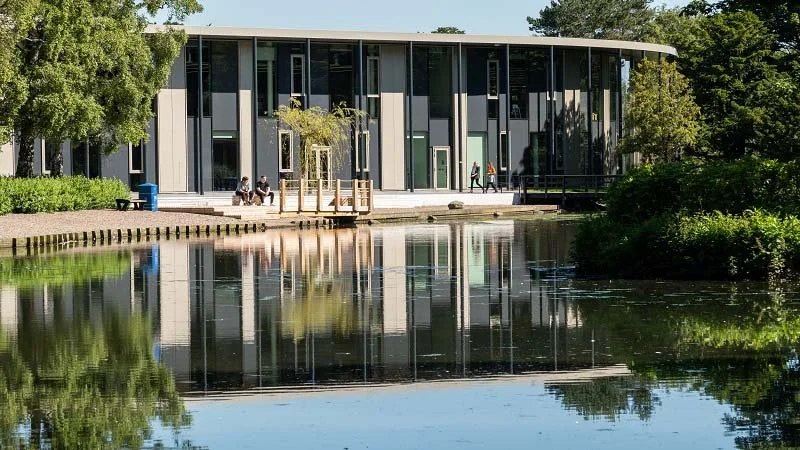Heriot-Watt University Announce Plans to Host International Space Sustainability Leadership Summit
Heriot-Watt University GRID Global Research Innovation & Discovery Facility
Heriot-Watt University, Edinburgh, UK, today confirmed plans to host The Niparo Summit on Space Sustainability on 21-22 May 2005, featuring leaders and influencers from across the international space sector. The Niparo Summit is at the forefront of bringing together academia, government and industry to create actionable next steps for space sustainability and orbital debris mitigation, in a highly complex geopolitical and billion dollar space industry.
The announcement has been welcomed by the UK Government, UK Space Agency and Space Network with high profile speakers confirmed for the event alongside leading academics from Edinburgh, Glasgow, Strathclyde and Durham universities. Heriot-Watt is one of UK’s leading universities for space photonics, quantum, robotics and AI, with the Global Research, Innovation and Discovery (GRID) facility. Key themes for the summit will focus on space law and insurance.
Head of Space Sustainability Ray Fielding, at the UK Space Agency said, “Space sustainability is a priority for the UK, with satellite technologies vital for modern life and underpinning 16% of our national GDP. That’s why we’re supporting the Niparo Summit, an important forum for debate and discussion that will bring international businesses, academics, and government officials together in Edinburgh. The UK Space Agency works with partners across Scotland and the UK to foster greater global collaboration on this vital topic while driving forward the development of new technologies and innovations that can help preserve the space environment for decades to come.”
CEO Andy Campbell of Space Network, the UK and Europe’s leading community of space professionals said, “Space Sustainability has never been more high profile from an industry and public perspective. It has to be a priority. The Niparo Summit is crucial to bringing together leaders to ensure space remains a safe and accessible domain for current and future generations.”
Professor Gillian Murray PhD, Deputy Principal Enterprise & Business, Heriot-Watt University said, “Heriot-Watt University is driving innovation in space sustainability, bringing together leading researchers, industry experts, and policymakers to tackle one of the sector’s biggest challenges. Hosting the Niparo Summit reflects our commitment to fostering collaboration and ensuring that space remains a safe and accessible domain for future generations. As the space industry continues its rapid expansion, higher education has a vital role to play in shaping its future. By working closely with businesses, government, and international partners, we can accelerate technological advancements, influence policy, and develop the talent needed to support a thriving and sustainable space economy. Through research, innovation, and knowledge exchange, we can push the boundaries of what is possible, ensuring that sustainability remains at the heart of space exploration and development.”
Niparo was the UK’s first space sustainability consultancy and think tank for the space industry, founded by Dr Nic Ross an astrophysicist and space law expert. Now in its third year the Niparo Summit brings together world leaders and influencers from academia, space agencies, government and business. The events are renowned for creating a unique atmosphere, with decision makers and thought leaders all in the same room at the same time, enabling deep dives into complex issues and action plans for space sustainability.
The event has received wide support across the space industry. Scotland is at the forefront of the UK’s space ambitions with world leading small satellite manufacturing, data analysis, research and testing facilities, and plans for launch capabilities from SaxaVord Spaceport in the Shetland Islands later this year. The UK Space Agency has prioritised space sustainability and is delivering a portfolio of supporting activities, including debris removal and in-orbit servicing.
Space sustainability has never been more high profile with space vital to critical infrastructure for modern economies and the rapid increase in launch capabilities and satellites, leading to an increasing threat of orbital collisions and debris falling to earth. According to the United Nations Office for Outer Space Affairs (UNOOSA) there are currently over 14,000 satellites in orbit and over 120 million pieces of space debris from launches, collisions and wear-and-tear of which only a few thousand are large enough to track. The Niparo Summit provides a forum to inspire international collaboration for prevention, mitigation and regulation.
For event details and to register, click here
